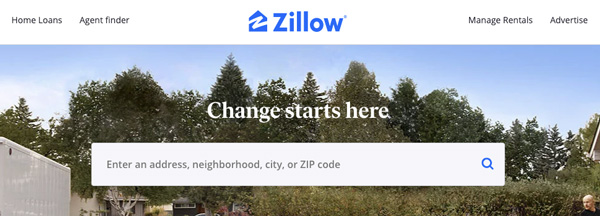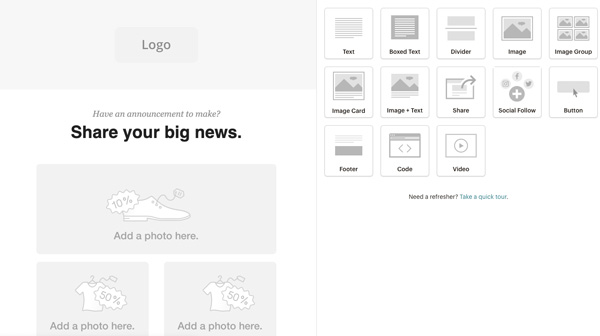How to Market Yourself as a Real Estate Agent
If you want to succeed as a real estate agent, you have to learn how to market properties and yourself.
For many real estate professionals, this is difficult and uncomfortable.
In today's free guide, you'll know exactly where to start and know how to confidently develop a marketing plan for yourself. This free guide covers:
- 4 Steps to Get Clear Before Marketing Yourself
- 10 Action Steps to Start Marketing Yourself
- How to Market Yourself as a NEW Real Estate Agent
- How to Market Yourself as an Experienced Real Estate Agent
4 Steps to Get Clear Before Marketing Yourself as a Realtor
1. Know Yourself
This is the single most important task you should do before marketing yourself. If you don’t know who you are, it will inevitably come across in your marketing strategies and in your communication with leads, clients, and even other real estate professionals.
You need to determine:
- Your why (We highly recommend Find Your Why by Simon Sinek to understand this more deeply)
- Your mission and values
- Your strengths and weaknesses
- Your boundaries and limits
- Your goals for 1, 5, and 10 years from now
- How you are different than your competition
In order to accurately and clearly market yourself as the best real estate agent to clients, you need to have a complete awareness of yourself.
For example, negotiation is a valuable skill in real estate, but it doesn’t come naturally to everyone. If negotiation is not one of your strengths, accept that. You can work to improve that skill, but focus your marketing efforts on your other strengths and values.
In addition, you need to know your personal work boundaries. Many people get into real estate for the appeal of freedom and flexibility, but end up getting sucked into the expectation that you need to be available 24/7. You can easily get carried away trying to respond to clients immediately, no matter what time of day, scheduling listing appointments on the fly, and even spending hours traveling to and from showings without a guaranteed sale.
In order to maintain your passion for your job and to help your clients to the best of your ability, you need a clear picture of your goals and your boundaries. You can tell your clients upfront that you will not answer texts, calls, or emails after 6:30 pm, and protect yourself from burnout or resentment.
To set these boundaries more easily, think about your goals as an agent. Do you plan to work with clients part-time while you homeschool your kids? Or do you have dreams of owning your own high-volume brokerage? Your goals will outline the path you will take and it will attract the right kind of clients to you.
2. Know Your Customer
The phrase "ideal client" can be hard to swallow for many real estate agents and brokers, because they believe they need to be open for any and every possible client to come their way. After all, more clients mean more commission checks.
However, by learning more about the buyers and sellers in your area and learning what types of work that you prefer, you're setting yourself up for maximum success. Although you can leave yourself open to working with anyone, your marketing capabilities will be very limited and you will inevitably face additional challenges.
Instead, pay attention to who your customers are so you can more accurately target your branding, messaging, and overall marketing methods. Start by asking yourself these questions about your customers:
- How old are they?
- Where do they currently live?
- When do they want to move?
- Where do they want to move?
- What motivates them to move?
- What do they dislike about their current home?
- What do they want in their next home?
- What kind of jobs do they work?
- What do they do for fun?
- Where do they spend their free time (shops, restaurants, clubs, etc.)?
- What groups are they a part of?
- What do they support and believe in?
- Where do they consume their information (mobile apps, Facebook groups, television/radio stations, magazines)?
- What social media platforms are they active on?

Image via Pexels
Defining Your Ideal Customer
Once you have a more clear picture of the different types of customers in your local real estate market, you can start deciding on your unique positioning. For example, you might find out that you most love helping single parents with financial challenges find housing for their families. However, is that a real estate niche that you can focus on and make profitable?
To help define your ideal clients, ask yourself:
- Who would you happily help for free?
- What's the size of this niche?
- Can this audience afford the area you want to specialize in?
- Can you be seen as their go-to provider?
Understanding your audience as a whole and clearly identifying your ideal clients is an important step in creating a real estate career that allows you to reach your goals, focus on your mission, and enjoy your work without stress.
For example, if you prefer using pen and paper and working with people face-to-face, then helping clients relocate to your area from 200 miles away over Facetime is probably not the best fit for you. It will cause you additional time and stress for the same amount of money. Instead, you can refer them to a more mobile-friendly agent, and use your energy on other prospective clients that bring you the same amount of money without extra effort.
Related: 10 Unique Open House Ideas
3. Know Your Market
In your required real estate education, you'll learn about the real estate market and how it works on a national level. But knowing your local market inside and out is the key to highly targeted and successful marketing--not to mention it also allows you to get the absolute best results for your clients. Start getting more familiar with your market by reading about what buyers really want in a home.
If you don't already know the different towns, neighborhoods, school districts, and types of homes in your area, that's where you should start. Then, think about your ideal customer and where they most want to live. For instance, if your ideal customer is millennial families, the quality of school districts is probably going to be one of the most important elements in their home search.
With the image of your ideal customer in mind, think about the strengths and weaknesses of each area for them. Write this out on paper until it becomes ingrained in your mind and you can accurately direct your buyers and sellers without having to think about it.
4. Know Your Competition
Everyone you know already knows an agent, which means there is some level of competition when it comes to building a real estate business. Even if you're not a competitive person, you need to have a clear understanding of the saturation of your market and how to stand out from your competition.
Start by finding out who your biggest competition is. A quick Google search may be all you need to find this answer. Your biggest competitor is the agent or broker who is working with your ideal clients. Then, start asking these questions to gain a deeper understanding:
- What is their messaging?
- Where are clients finding them?
- How are they converting leads to clients?
- What are their strengths and weaknesses?
- Where are their gaps for your ideal customers?
With your new understanding of your competition and of yourself, you can create a marketing plan that reaches your ideal clients most effectively.
Stand Out By Embracing Your Unique Personality
Don't hide your personality behind a mask of professionalism. Instead, use the unique qualities of your personality to stand out from the competition!
Take Jennifer Wehner as an example. She calls herself "The Healthy Agent," combining her love for health and fitness with her real estate expertise. Would you remember her as well if she blended in with all the other suit-wearing brokers?

That's doubtful. You are very likely to remember her face, the brightly colored Facebook background, or even her planks in her Facebook ads.
10 Action Steps to Start Marketing Yourself
1. Create Branding Assets
Branding is a marketing term that basically refers to your overall design and messaging. Your brand should represent who you are and attract your ideal audience.
For example, Zillow's branding is this exact shade of blue and a few of the same fonts. On any page of their website, you can see these colors and fonts.

Branding is what builds recognition and familiarity--case in point, Apple doesn't even use their company name on many of their billboards, because their branding is so well-recognized.
This may seem like an easy step to skip, but it's an important element of being able to market yourself as a realtor. Without branding, you might start running real estate ads with various colors and designs just because you like the look. However, instead of attracting the right people to you, you're actually confusing them.
Even if you don't have a designer bone in your body, there are plenty of tools and resources to help you develop beautiful branding without extensive stress. Start by getting professional photos taken, then develop your brand colors and logo. We recommend 99designs or Dribble for logos or any level of graphic design resources.
2. Hire a Professional Photographer
During your time in real estate, you might need a professional photographer for headshots. But even more importantly, you'll need a photographer to be ready for your listings.
Listing photos make or break the sale of any property. Would your clients jump out of their seats to go visit this property?

Via Craigslist.com
I'm willing to bet the answer is a universal no.
On the other hand, a home with plenty of clear and bright listing photos like the one below will bring a different reaction. Learn the best tips to take photos of your properties.

Example of virtually staged listing photo from Stuccco
Although it does take a little bit more time and money than snapping a few photos from your phone, using professional photography for your listing photos will make an undeniable difference in the results you can get for your clients.
If photography, design, and home improvement are not your strength, there are plenty of tools available to help you. Since staged homes sell for 17% more and 87% faster than non-staged homes (Forbes), getting your home virtually staged is the fastest, most effective, and most affordable way to sell a home for the most money.
Placing a virtual staging order with Stuccco takes about five minutes, and your staged photos are ready within 24 hours. Try it today and see the difference tomorrow!
3. Order Business Cards
With your new branding, ordering business cards should be a very simple task. Even though a large percentage of agents are finding new clients via online real estate marketing methods, you should still have business cards ready to give to potential clients or new connections in your community.
To make your business card stand out and to make it easy for interested leads to contact you, order business cards with a QR code. This is a great way for connections to save your website or landing page to their phones so they can carry it around with them.
4. Gather Testimonials
92% of customers read online reviews before making a purchase--in this day and age, this is how potential clients decide whether or not you are trustworthy. Even two to three short testimonials could make a significant impact on your ability to convert leads to clients.
5. Set Up Your Social Media Profiles
Setting up one or multiple social media profiles is not necessarily a complex task, but it can be time-consuming. Having your logo and branding ready will make it much easier. The main question that more real estate professionals ask about social media isn’t about how to create a profile. It's actually....
What's the best real estate social network?
There are so many different social media platforms; Facebook, Instagram, TikTok, Twitter, Pinterest… where do you even start? Well, the first thing you should know is that you don't have to create a profile on every social media network--and you shouldn't!
Instead, it's wise to choose only one or two social media networks and focus on building a targeted audience on those platforms. Trying to grow a business through five different social media accounts is a full-time job in itself--your time is better spent focusing on only the most profitable platforms.
According to the CE Shop, the top three real estate social networks are:
However, make sure you do some of your own research. Look for groups or hashtags specific to your local area and/or your target audience, and see if you can find a significant amount of local real estate content on that platform.
6. Set Up Your Real Estate Website
Depending on the real estate brokerage you work with, it's likely that you will receive access to your own real estate website for free. Keep in mind that free websites through your brokerage are typically very basic, and that you won't be able to keep them if you choose to change brokerages in the future. However, even the most simple website can still be a valuable asset.
If you haven't already, take the time to set up your real estate website with your headshot, contact information, and social media links. If you choose to use content marketing, SEO, or landing pages as part of your real estate marketing strategy, you will eventually have to purchase, create, and design your own website with all the necessary functionality.
7. Set Up Your CRM
A CRM (customer relationship management) is a tool used to track your contacts, leads, clients, and sales. Using a CRM prevents you from forgetting to follow up with any potential leads. There are plenty of real estate CRM options out there, but a few great choices are:

Sample screenshot of Follow Up Boss CRM
8. Develop a Content Strategy
After your website and social media profiles are created, it's time to publish content. You might not be used to using social media for business, but it's time to plan ahead and post with a strategy--not just when you have a new listing or when you took a great selfie.
Go back to your fundamental understanding of your target audience and yourself. Post content that is genuine, reflects your personality and values, and also creates interest and attracts the right customers.
The most efficient way to consistently post high-quality content is by planning ahead and using an automatic scheduler, like Publer. For more help building a real estate brand on social media, check out Coffee and Contracts.
9. Determine Your Lead Generation Strategy
Let me be clear; you do not need to set up a 48-point real estate marketing funnel on the first day your license is approved. In fact, it’s better not to complicate things. Start by helping clients buy and sell real estate, and your marketing strategy will naturally grow and develop over time.
However, it is wise to think about how you will consistently generate real estate leads, convert them into clients, and then nurture your sphere of influence for referrals and repeat business from the beginning of your real estate career. There are an endless number of real estate marketing methods, and it can be completely overwhelming. The best way to reduce overwhelm and identify the best choices for you is by noting, over time, how clients naturally find you and where your best clients come from.
For more details and marketing ideas, read about the top 20 ways to generate real estate leads.
10. Follow Up With Leads and Clients
As they say, “the fortune is in the follow-up.” No matter how you generate leads, you must very intentionally create and nurture your relationship with them.
The most effective, most efficient, and best way to do that? Follow up FAST.
In fact, the first five minutes is the best time to reach out to new leads. This means that you make a personal connection with the lead while you are still fresh in their mind. By waiting even 20 extra minutes, that lead has likely moved on to a different task, and potentially even found someone else.
This is where your CRM comes into play. Choose a CRM that will alert you when a new lead opts in to your website or reaches out on Zillow, Realtor.com, or any other source. And for the times that you are unable to make a call at a moment's notice, use email automation.
Create an Email Marketing Strategy for Follow Ups
Email marketing is particularly effective in the real estate industry. In fact, a study by the NAR (National Association of Realtors) showed that 94% of Realtors and clients prefer to communicate via email over any other communication method.
Even for newer real estate agents who might not have ever even heard of email marketing, it's a relatively simple method of staying in contact with potential buyers, sellers, as well as current and previous clients. You can use a platform like Mailchimp, which is free for up to 500 contacts, to easily create and send regular newsletters and follow-up emails.

Screenshot of Mailchimp email editor
Email is one of the top real estate marketing ideas for agents because it takes a small amount of work and can be used to build relationships with clients over and over. You can create an email sequence that automatically goes out to all new in-person or online real estate leads. This allows you to always reach them in the first five minutes, even if you can’t place a call in that timeframe.
Email is also a perfect channel to continually follow up with previous clients and those in your SOI. Use your CRM to consistently review and update your leads and reach out to those who you haven't talked to recently. Don't be hyper-focused on a sale, just focus on building and deepening your relationships and being a helpful resource.
You can and should also send out consistent emails presenting some kind of value. These can be real estate market reports or weekly newsletters--and don't forget to include your personality!
How to Market Yourself as a NEW Real Estate Agent
The challenge in marketing your real estate services when you're brand new is that you don't have results you've gotten for clients or real estate-specific testimonials. While this is an obstacle, it doesn't have to stop you from successfully marketing yourself and launching a successful real estate career!

The 14 steps listed above will set you up for success, but make sure you also consider:
- Getting professional headshots that align with your brand
- Launching your services and social media accounts with a giveaway
- Announcing your real estate career to your sphere of influence (SOI)
- Reaching out personally to members of your SOI
- Network at in-person and virtual events as often as possible
- Create a social media content strategy and test out different methods
- Be open-minded about working with different types of clients
- Gather 2-3 professional testimonials, even if they aren't specifically about real estate
How to Market Yourself as an Experienced Real Estate Agent
Logically, marketing your real estate expertise is much easier when you've already worked with clients and know the lay of the land. However, if you did not create a strong marketing foundation at the beginning of your career, this can feel as if you're going backward.
For experienced real estate agents, you can and should implement the same marketing strategies as new agents--with a few notable differences. Since you've already gotten great results for clients, walked through many unexpected challenges, gained a deep understanding of your local real estate market, and likely have a collection of great testimonials, it will be a much faster journey to establish your marketing plans.
Here are a few ways to firmly establish your marketing foundation as an experienced real estate professional:
- Gather all your testimonials and publish them
- Make a list of all the positive results you got for clients
- Purchase a website separate from your brokerage
- Create a case study
- Create a comparative market analysis (CMA) and send insights as a newsletter
- Continue to network and reach out to your SOI
- Establish referral partnerships with other businesses
- Build recognition by writing guest posts or being a guest speaker on podcasts
- Create a sample single property website to show to potential listing leads
Marketing Yourself Through Your Systems
The best way to build a successful business is by serving your clients well. Happy customers want to support you and refer you to other people. The way that you serve your clients is marketing.
By optimizing the systems your use when you're serving clients, you improve their real estate buying or selling experience. Whether that means sending them a list of resources and FAQs, marketing a listing effectively, connecting them with the best professionals in your area (mortgage brokers, home inspectors, insurance agents, etc.), or simply maintaining great communication--you are essentially marketing to your clients.
As your business continues to grow, you will continue to improve your systems to serve your clients and generate new leads more effectively.
To help you achieve both of those goals, use virtual staging. Virtual staging helps you sell houses faster and for more money, and both homeowners and home buyers will be impressed with your ability to market a home and get results. Try virtual staging today and see the results in 24 hours!
Related post:


